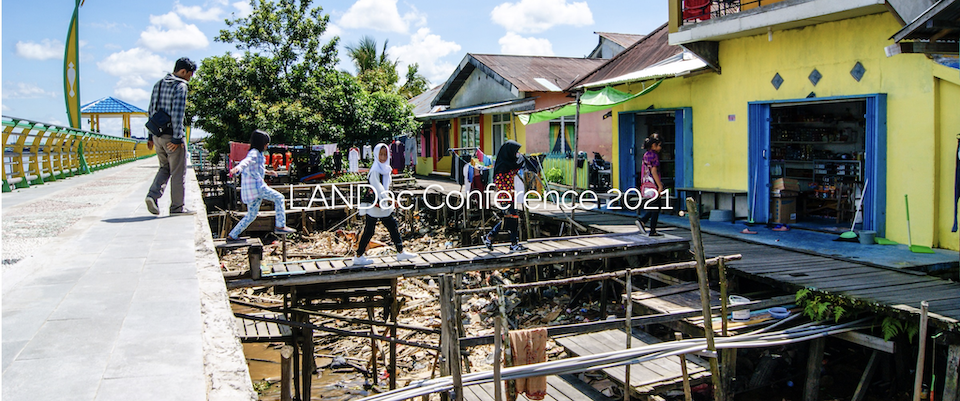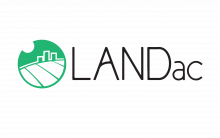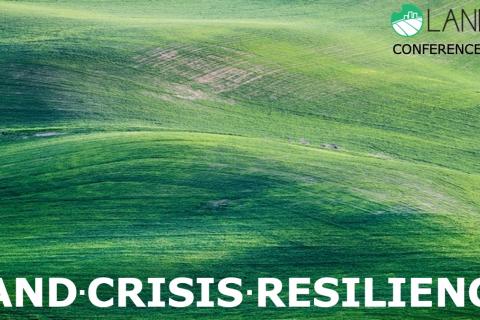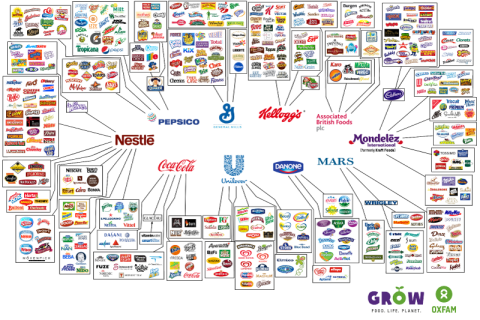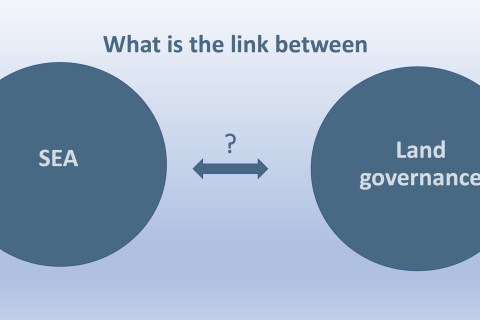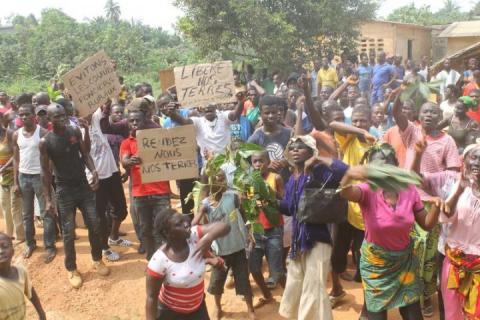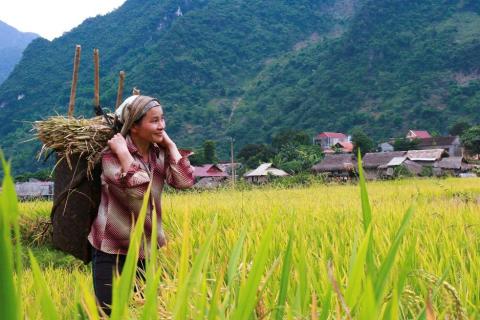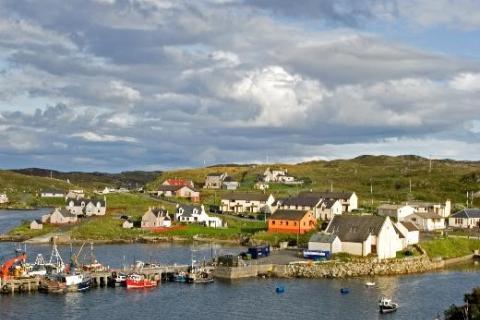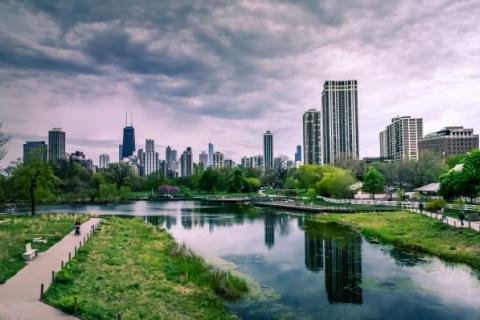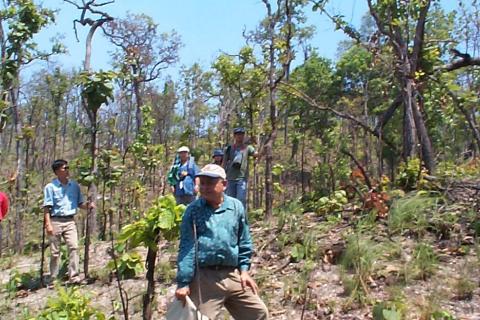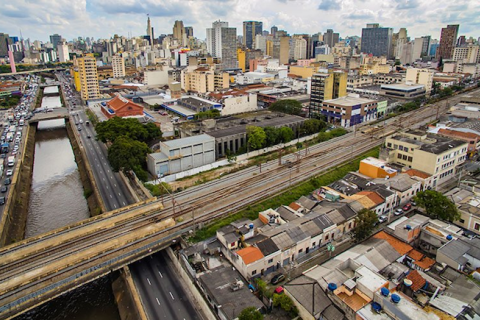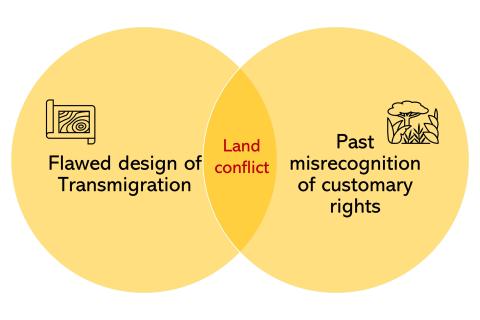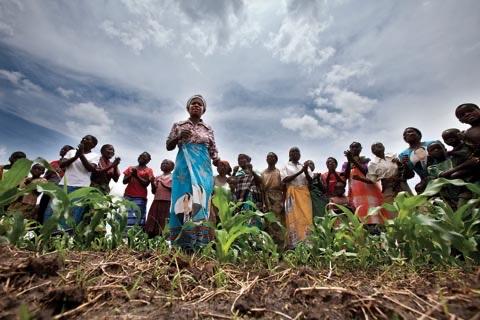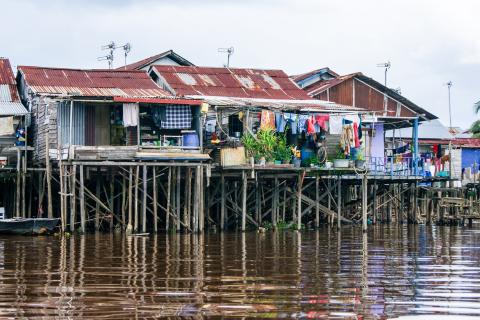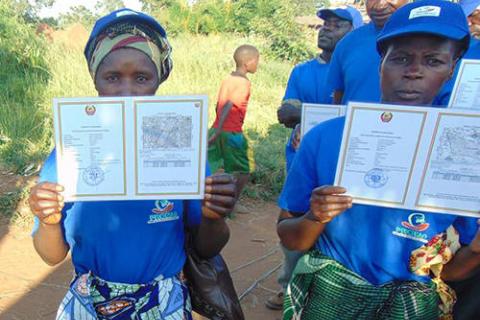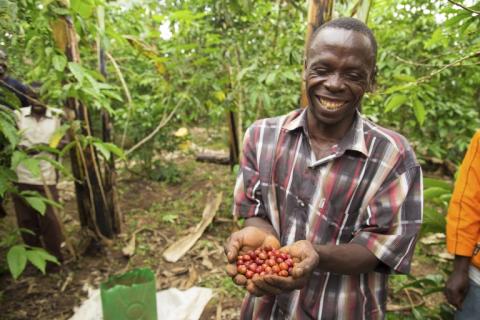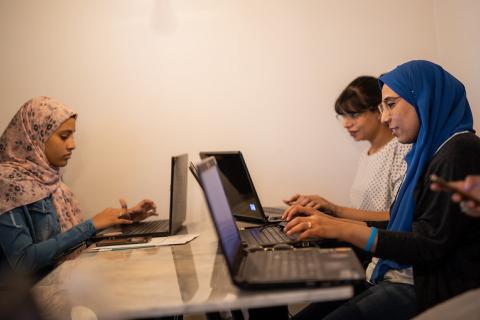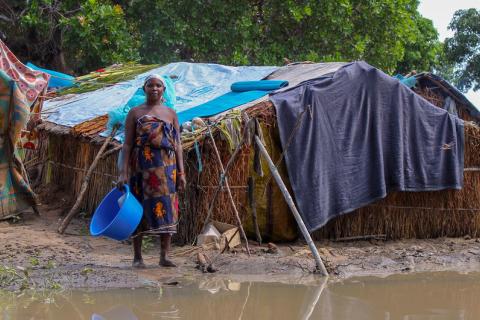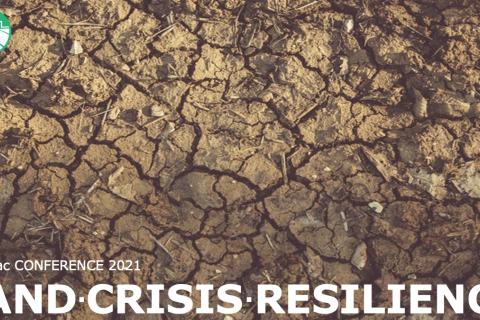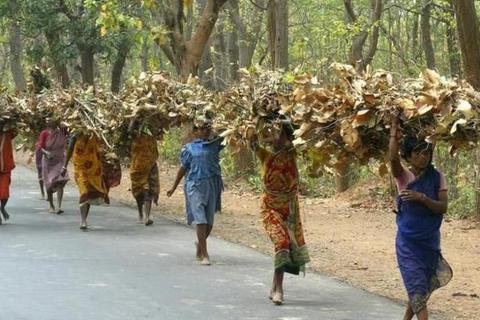Land, Crisis and Resilience
30 June – 2 July 2021
afternoons (CEST), online
The LANDac Annual International Conference offers a podium for knowledge exchange between researchers, practitioners and private sector representatives interested in land governance for equitable and sustainable development. Anticipating that the COVID-19 global crisis will continue to restrict travel and large-scale events, the LANDac Annual International Conference 2021 will be held in an online format.
This year’s conference ‘Land, Crisis and Resilience’ focused on the challenges that global, intertwining crises pose to land governance systems, processes and actors. The global pandemic and the expected economic decline play out simultaneously with ongoing effects of climate change and persistent food insecurity. The COVID-19 pandemic put land access and land governance under pressure, and both uncovered and deepened underlying problems. While we have only started to document the impacts of the pandemic on rural and urban livelihoods, we also need to ask how it plays out in relation to these other crises, chronic (such as poverty) or acute (e.g. climate-related hazards). To this background, the conference addresses three interconnected questions:
- How do different global crises impact land access? (And where do we see the biggest problems?)
- How does the land governance landscape respond? (And where does it need to do better?)
- What can we learn about resilience in response to these intertwined crises? (And how could land governance support that?)
LAND, CRISIS AND RESILIENCE
In response to the COVID-19 crisis, governments all over the world have taken unprecedented measures to contain the spread of the virus, curtailing individual freedoms, closing borders, shutting down non-essential businesses and services, imposing curfews, and restricting national and international travel. The consequences of these restrictions have hit hard on the poorest and the most marginalized. Issues such as urban-to-rural migration, discontinuation of land administration services, disruption of food supply chains, and a shrinking civil space have been reported at the beginning of the global pandemic, but much is unclear about the mid-to-longer term effects.
Climate change had only started to gain prominence on the land governance agenda and there is a clear need to reflect on the land footprint of climate change mitigation and adaptation measures. Both alternative sources of energy, such as wind and solar energy, and infrastructural interventions translate into claims on land and will compete with existing rights or other potential uses of the land. Another concern relates to the shifts in land use patterns and people’s mobility (from and between rural and urban areas) in response to differential effects of climate change such as extreme weather events, or unpredictability of rainfall. We may expect this to increase land scarcity in some places while potentially reducing it in others. There are important questions to be asked about the way these claims are dealt with and whether principles of ‘good governance’ are upheld in the face of the climate imperative; how this will shape rural and urban landscapes; and how land governance institutions and instruments may support sustainable land use and food security.
The conference is also an opportunity to take a critical look at the concept and experiences of resilience to these crises. Key concerns are to what extent adaptation and coping strategies have helped different population groups get by so far but also where future coping is clearly undermined, Important questions pertain to the resilience in the face of multiple crises at different spatial and temporal scales, but also where social protection measures seem needed to avoid vicious circles of loss of assets and the undermining of livelihoods.
ONLINE CONFERENCE FORMAT
In response to the challenges posed by the COVID-19 global crisis, the LANDac Annual International Conference 2021 will be held in an online format. This online format broadens the ways for participants to attend the conference: people from all over the world can join us without having to travel. The programme of this conference will include a diversity of keynote speakers from research and practice and several parallel sessions (roundtables, workshops, discussions) that participants can actively join. Keep an eye on the LANDac website for updates.
REGISTRATION AND FEES
Registration for the conference will open in Spring 2021 and close mid-June 2021. The fee to join the full conference (incl. key notes) online is €25. We regret that LANDac is unable to cover any participant expenses.
ORGANISING COMMITTEE OF THE 2021 CONFERENCE
Joanny Bélair (Utrecht University and LANDac), Gemma van der Haar (Wageningen University and LANDac), Dominique Schmid (Utrecht University), Richard Sliuzas (ITC – University of Twente), Marja Spierenburg (Leiden University), Guus van Westen (Utrecht University and LANDac), Chantal Wieckardt (LANDac).

- Dr Shuaib Lwasa
Shuaib Lwasa is a Principal Researcher on Governance at the Global Center on Adaptation. Shuaib has over 22 years experiences of university teaching and research as Professor of Urban Sustainability at Makerere University. He has worked extensively on interdisciplinary research projects focused on African cities but also in South Asia. His publications are in the areas of urban mitigation of and adaptation to climate change, urban environmental management, spatial planning, and disaster risk reduction, urban sustainability. Shuaib is a Coordinating Lead Author of the IPCC WG III Chapter 8 “Urban Systems and Human Settlements” and Lead Author for the IPCC Special report on Land and Climate Change.
- Silas Siakor
Silas Siakor is actively working with the Government of Liberia and civil society organizations, directly coordinating efforts to bring more than 1 million hectares of land under local communities control and ownership by the end of 2021. He has championed community forest and land rights in Liberia for about two decades. For his work, he has received several international awards, including the Whitley Award for Environment and Human Rights in 2002 (UK), the Goldman Environmental Prize in 2006 (US), Award for Outstanding Environmental and Human Rights Activism from the Alexander Soros Foundation (US), Mundo Negro Fraternity Award in 2018 (Spain) and was among Time Magazine’s Heroes of the Environment in 2008. Silas founded the Sustainable Development Institute (SDI) in Liberia and served as its first Director from 2005 to 2009. He also stars in the award-winning 2018 documentary ‘Silas’, that was screened at IDFA and in various movie houses in the Netherlands and beyond in 2018. Silas joined IDH in 2015, leads IDH work on land governance, coordinating Participatory Land Use Planning and Customary Land rights formalization, and now serves as Country Manager.
- Dr Wytske Chamberlain
Wytske Chamberlain works with the Land Matrix, Africa RFP, hosted by the University of Pretoria. Over a period stretching more than ten years, she has developed deep insights into large-scale land acquisitions across the African continent. Besides her activities in the area of large-scale land investments, Wytske has specialised in the field of inclusive business models, in particular in the agricultural sector. She has done extensive research into the complex and compound structures that enable the integration of smallholder farmers and poor rural communities into commercial value chains in South Africa. Her interests furthermore lie in the area of land governance. Dr Chamberlain holds a PhD in Rural Development from the University of Pretoria, an MA degree in Human Geography from the University of the Witwatersrand, and an Honours degree in International Economics and Economic Geography from Utrecht University.

